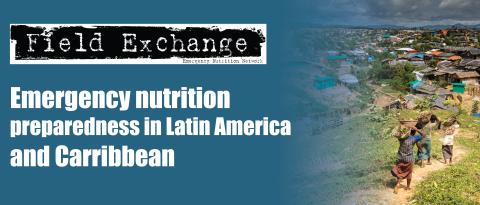Setting research priorities on multiple micronutrient supplementation in pregnancy
Research snapshot1
A series of publications recently presented evidence of the benefits of multiple micronutrient supplementation (MMS) on maternal and perinatal outcomes in addition to those provided by iron and folic acid (IFA) alone. Outcomes included significant risk reduction of low birth weight (LBW), small for gestational age (SGA), preterm birth, and stillbirth. However, important gaps in knowledge remain in the implementation of MMS in prenatal care programmes, which affect the successful implementation of this intervention. To clarify research needs, the Child Health and Nutrition Research Initiative (CHNRI) methodology was applied to inform the direction of research and investments needed to support the implementation of MMS interventions for pregnant women in low- and middle- income countries. Between April and June 2019, a group of international specialists identified and ranked the most urgent gaps in knowledge, focusing particularly on aspects that would improve the delivery and effectiveness of this intervention.
Seventy-three research questions were received, analysed and reorganised, resulting in a final list of 35 research questions. These were scored in turn against four criteria, yielding a list of 10 ranked-priority research options. The questions that received the highest priority were those that focused on the use of behavioural change and counselling strategies, and community workers to increase antenatal care (ANC) attendance and adherence to MMS. This is not surprising, given that low adherence to prenatal micronutrient supplementation is a major barrier to achieving the full potential benefits of this intervention, even when programme coverage is satisfactory. Other high-ranked questions were about the best (field-friendly and cost-effective) indicators and methods needed to identify populations more likely to benefit from prenatal MMS interventions. This may be justified by the lack of clear guidance for countries interested in adopting MMS interventions in the 2016 World Health Organization (WHO) Guidelines for ANC. In addition, questions around the potential benefit of extending MMS interventions beyond pregnancy into the lactation period were also ranked high. The lowest-scored question pertains to the marginal costs and benefits of adding each vitamin or mineral to MMS (possibly ranked low due to the presence of the commonly accepted ‘UNIMMAP’ formulation used in many of the trials that demonstrated additional benefits of MMS over IFA). This exercise identified important research gaps that must be urgently addressed to improve the implementation of this important and cost-effective nutrition intervention.
Endnotes
1 Filomena Gomes, Megan W. Bourassa, Seth Adu Afarwuah, Clayton Ajello, Zulfiqar A. Bhutta, Robert Black, Elisabete Catarino, Ranadip Chowdhury, Nita Dalmiya, Pratibha Dwarkanath, Reina Engle Stone, Alison D. Gernand, Sophie Goudet, John Hoddinott, Pernille Kæstel, Mari S. Manger, Christine M. McDonald, Saurabh Mehta, Sophie E. Moore, Lynnette M. Neufeld, Saskia Osendarp, Prema Ramachandran, Kathleen M. Rasmussen, Christine Stewart, Christopher Sudfeld, Keith West, and Gilles Bergeron. 2019. Setting research priorities on multiple micronutrient supplementation in pregnancy. The Authors. Annals of the New York Academy of Sciences published by Wiley Periodicals, Inc. on behalf of New York Academy of Sciences. https://doi.org/10.1111/nyas.14267


